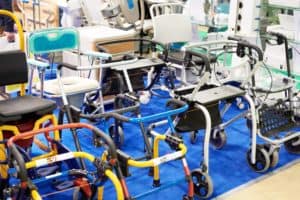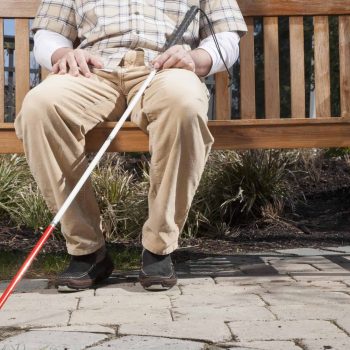

Mobility & Disability
How Do I Help a Loved One Deal With a Physical Disability?
SonderCare Learning Center

SonderCare Learning Center
Taking care of someone with a physical disability is challenging. An essential part of caregiving is to ensure the person enjoys maximum comfort and has the best quality of life by helping them feel safe and independent.
Considering one in five people in the U.S. has a disability, almost everyone has someone close to them who needs extra care and attention. If being a caregiver is a part of your everyday life, it helps to educate yourself about how you can support that person in their journey.
Helping someone with a physical disability live a healthy, safer, and more comfortable life can be a rewarding experience. Here are a few ways to help your loved ones.
Each person has different needs. The best way to understand someone’s needs is to pay attention and listen carefully. Observe what your loved one has to say about their emotional or physical needs and adjust your care to their requirements.
Whether you are offering emotional or physical help, always customize your assistance to be appropriate to the person’s lifestyle. For example, if you provide care for seniors, take time to know what activities they enjoy and what makes them comfortable and happy. If it’s something they don’t care for or aren’t familiar with, it could create unnecessary stress or confusion.
The key to making sure your loved ones know you are there to support them is to be responsive. People with physical disabilities often feel vulnerable, and they need someone on whom they can depend. Next time your mother, grandfather, or aunt calls you for help with something, be attentive and supportive. If your family member asks you for help with a particular task, it is best to respond quickly to prevent them from feeling lonely or sad. Always be kind and enthusiastic so they can thrive on your positive energy.
It is always good to be ready for an emergency, especially if your family members have a physical disability. You can consult with a medical care provider about what to do during an emergency and how to carefully provide your loved one with a quick and safe exit.
Support, love, and kindness are essential for every person, especially those who live alone and require additional medical assistance. Find ways to show your compassion in simple ways—treat your family member with a quick walk in the park, surprise your friend with a warm meal, or offer them a special movie night you know they will love. The most important thing is to accept them, love them, and be there for them.
Just as a person with a physical disability shouldn’t need to go through life’s changes alone, families should welcome any help their friends offer. Besides emotional support, you may also want to consider medical equipment that will provide greater comfort and enjoyment for your loved ones.
At SonderCare, you can find medical equipment products that guarantee safety, improved sleep, and greater independence.
Simply ask a person with a disability how you should engage with him or her if you are confused. Do not presume that when somebody has a disability, they require assistance. Do not offer aid first before checking if they require it.
Spinal, Orthopedic Disorders and Arthritis are very common mobility/disability issues in people especially as they age. These are defined as inflammation and discomfort in joints.
Start Exploring Mobility & Disability With SonderCare
Are you recently discharged from hospital, experiencing mobility issues, or in need of palliative or senior care? Enjoy a smoother recovery and get the luxury you deserve by choosing our home hospital products. Contact us today to discuss home hospital beds, mattresses, stand assist chairs and other accessories to make your home hospice perfect for a truly comfortable experience.
Are you looking for the most recent articles on physical disability resources? Browse our latest resources below and let us know if you have any questions. We’re here to support you as you embark on your road to home medical care.
Seeking The Best Care For Your Loved One?
Browse North America's Luxury
Mobility & Disability
Product Inventory